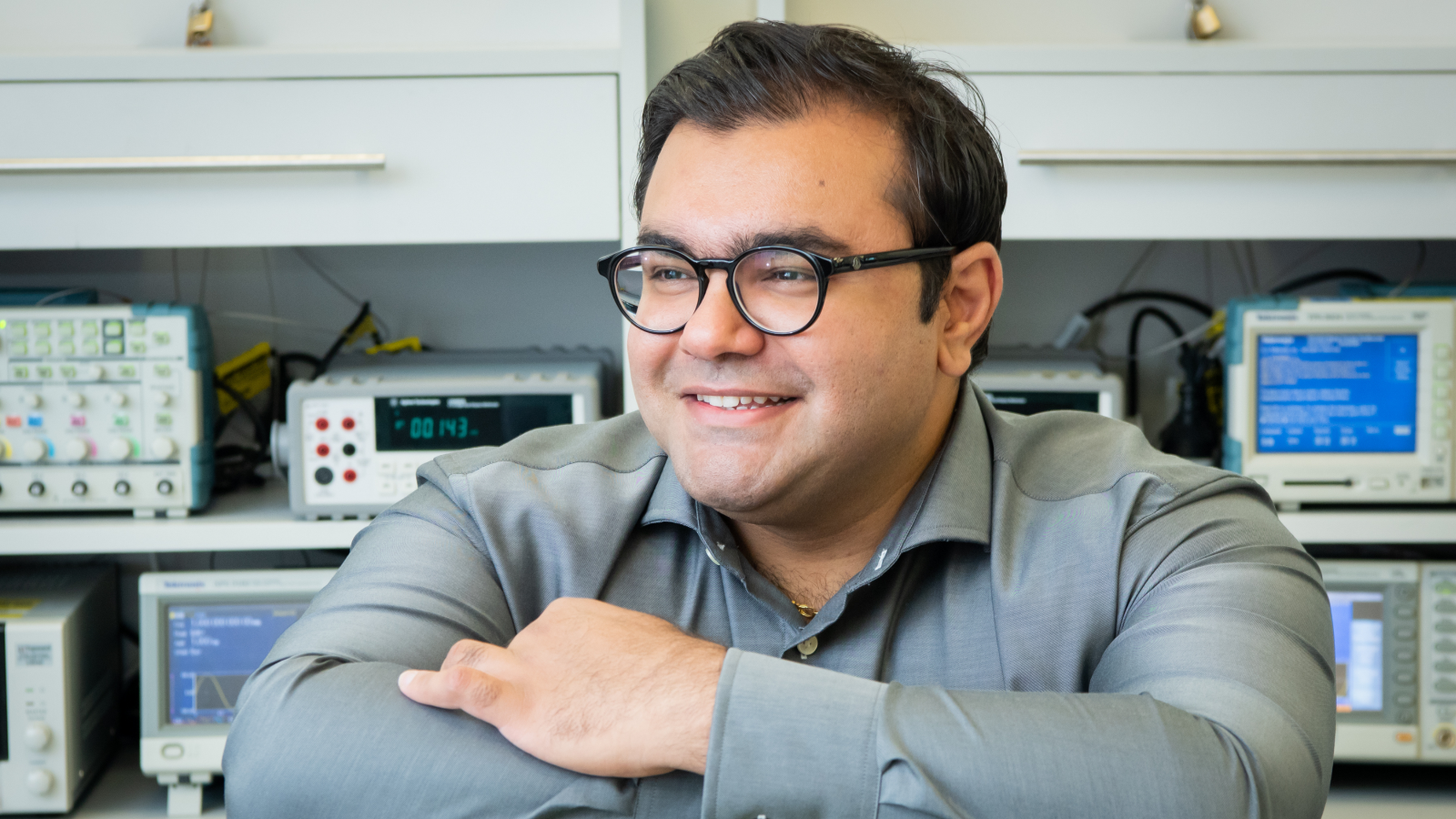
Harsh recently received the Swedish Research Council grant towards his research on wireless communication systems operating between 140-300 GHz frequency band.
Originally from Baroda, India, Harsh’s family moved to Wellington when he was 12. He began at the university in 2010, completing a Bachelor of Engineering (Honours) degree, majoring in Electronic and Computer Systems, before gaining a Ph.D. in Electronic Engineering.
“The university offered a brand-new engineering set-up, with subjects that catered to specific demands of the industry – and that’s what drew me to the engineering programme. I was impressed by the opportunity to interact with leading subject-matter experts and was excited to develop a positive research and development culture in Wellington. I enjoyed learning how to take a systems-level approach to solve complex electronic engineering problems during the four years of my undergraduate studies,” says Harsh.
He completed his Ph.D. between 2014 and 2017 and then took up postdoctoral research fellowships to pursue research in communications engineering at three of the most prestigious engineering universities in the world—Lund University in Sweden, University of Southern California in the United States, and Queen’s University in the United Kingdom.
“Learning to adapt my research directions to stay on top of the latest developments in the telecommunication industry, and going on to set out new research directions/initiatives in wireless communications has been a challenging, yet an extremely rewarding experience,” he says.
Harsh’s multi-faceted role as Assistant Professor in Communications Engineering at Lund University, Sweden involves him being a part of various industrial, government, and academia-led international and national research projects. He has been part of more than 10 multinational projects on 5G-and-beyond systems with leading industrial telecom equipment vendors such as Ericsson, Sony, and Samsung. He has also been involved in multiple European Union research projects in the Horizon 2020 scheme, involving large consortiums of industrial and academic partners from different European countries. This has seen him develop and maintain a strong international collaboration base with universities in the US, UK, rest of Europe and Oceania.
“My research focuses on the real-time characterisation of radio propagation channels and RF transceiver front-end solutions for 5G-and-beyond systems. I enjoy ‘closing the loop’ in the research and development cycle by taking solutions from theory to reality,” he explains.
Harsh has also received funding from other organisations for his contributions to the field of communications engineering. In 2019, he was the principal investigator on a project about millimeter-wave propagation supported by the Swedish Royal Academy of Natural Sciences, Medicine and Technology. In 2020, he received the Göran Linds Prize in Applied Electronics, awarded by the same organisation, for demonstrating research and development excellence towards a best-in-class 27.5-29.5 GHz RF propagation measurement equipment design.
“As an engineering student, I found it fascinating that each problem you face lends itself to very detailed solutions and has the ability to create deep impact on human lives. Most often, more than one solution existed, but choosing the ‘correct’ solution really depended on mastering the art of evaluating engineering trade-offs, something which I got better and better at doing as I progressed. It was a rewarding experience, filled with a lot of hard work,” he adds.
He enjoys supervising the next generation of young communications engineers at Lund University, saying “My current role gives me the opportunity to interact with and influence the development of young communications engineers through technical and non-technical teaching and mentoring, which I greatly value.”
